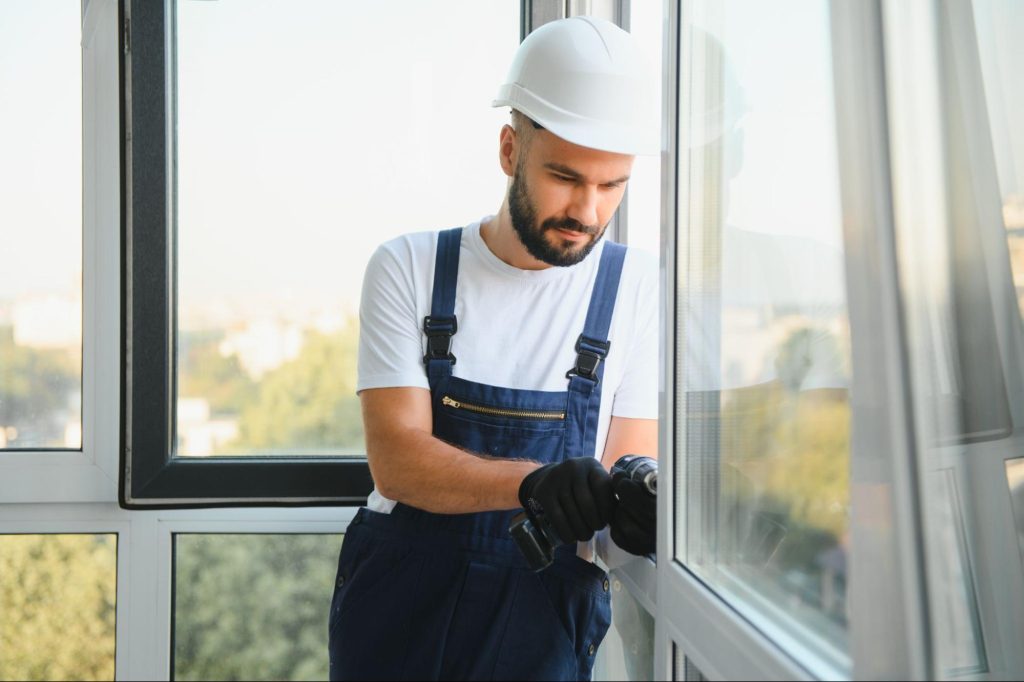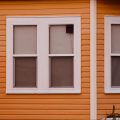Windows are essential to your home’s function and style. They safeguard your space from external elements and enhance comfort. Damaged windows, however, compromise safety, energy efficiency, and aesthetics. Ignoring minor issues can lead to more significant problems, increasing costs over time. Understanding when to repair windows ensures a more comfortable, secure, and cost-effective living space.
Benefits of Repairing Windows
Repairing your windows offers more than just aesthetic value. It provides long-term solutions for issues that impact your home’s efficiency and security. Addressing these problems promptly ensures your living space remains functional and pleasant.
Improved Energy Efficiency
Repaired windows help maintain a stable indoor climate. They prevent energy loss by sealing gaps and cracks, significantly reducing heating and cooling costs over time. Energy-efficient windows also lessen environmental impact, contributing to sustainability.
Enhanced Comfort
Properly repaired windows block drafts and air leaks. They ensure consistent temperatures across rooms, enhancing daily living. Restoring window seals also reduces outdoor noise, making your home quieter and more relaxing.
Increased Home Value
Well-maintained windows enhance your home’s appearance and functionality. Prospective buyers often prefer homes with updated windows. Repairing damaged windows can positively impact your property’s valuation. A better market price for your home makes the effort worthwhile.
Better Security
Faulty windows weaken home security, making them a target. Repairs strengthen frames and locks, reducing this risk. Fixing mechanisms also prevent accidents like falling windows. Reliable repairs keep your home safer for everyone.
Signs You Need to Repair Windows
Identifying when your windows need repair can prevent significant issues. Addressing these signs early can save time and money while improving comfort.
Drafts and Air Leaks
Drafts often indicate poor window insulation and air leaks disrupt your home’s temperature balance. These issues strain your HVAC system and increase energy bills. Repairing gaps resolves these problems, restoring efficiency and comfort.
Visible Damage
Cracks, warping, or rotting frames signal the need for repair. Left unattended, such damage worsens over time. Repaired windows maintain structural integrity and aesthetic appeal. Prompt fixes protect against further deterioration.
Difficulty Operating Windows
Sticking or jamming windows can be frustrating and unsafe. Faulty mechanisms may compromise your home’s ventilation. Repairing hardware ensures smooth operation and reliability. Safe and functional windows make daily use effortless.
Fogging or Condensation
Moisture between panes indicates failed window seals. Broken seals affect insulation and energy efficiency. Repairs restore clarity and thermal performance. Keeping panes dry maintains your home’s visual appeal.
Factors to Consider Before Repairing Windows
Before repairing windows, evaluate several key factors. These considerations can help determine the best course of action for your home and budget.
Age of Windows
Older windows may require frequent maintenance or replacement. Repairing them can be less cost-effective over time. Consider if repairing is a temporary fix or a long-term solution. Balancing age with repair needs ensures wise investment.
Material and Design
Different materials need unique repair methods. Wooden frames, for instance, may rot, while vinyl warps. Repair complexity often depends on the material and design. Choosing suitable methods ensures effective and lasting fixes.
Extent of Damage
Minor issues like small cracks are often repairable. Severe damage may warrant a complete window replacement. Weighing repair costs against long-term benefits is crucial. Make choices that prevent repeated repairs down the road.
Budget Constraints
Window repair costs vary based on the scope of work. Setting a budget helps prioritize necessary fixes. Aim for solutions that fit your financial plan. Effective planning prevents overspending while addressing urgent needs.

Professional Window Repairs vs. DIY
Knowing when to repair windows yourself or hire experts is crucial. Balancing complexity and costs ensures safe and reliable solutions.
Advantages of Hiring Professionals
Professionals provide thorough and efficient repairs. Their expertise ensures high-quality, long-lasting solutions. Experts can also address hidden issues that DIY may overlook. Investing in professional services saves time and prevents mistakes.
When DIY Repairs Are Feasible
Simple tasks like tightening handles or sealing gaps are manageable. Basic repairs save homeowners money and time. DIY is ideal for straightforward fixes requiring minimal tools. Knowing your limits is essential for effective maintenance.
Risks of Incorrect DIY Repairs
Attempting complex repairs without skills can worsen issues. Incorrect fixes might lead to safety hazards or higher costs. Understanding the risks helps avoid expensive errors. Trusting experts for advanced repairs ensures reliable results.
Evaluating Repair Complexity
Assess if the repair matches your skills and tools. Minor tasks may be tackled at home with confidence. More extensive repairs, however, usually need professional attention. Careful evaluation avoids unnecessary setbacks and expenses.
Timing Window Repairs
Timing window repairs wisely prevents additional costs and inconvenience. Choosing the right time improves repair quality and efficiency.
Ideal Weather Conditions
Warm, dry weather allows materials to be set correctly. Rain or freezing conditions complicate repairs and cause delays. Planning repairs for favorable seasons enhances results. Weather considerations ensure timely and effective fixes.
Impact of Delayed Repairs
Prolonging repairs increases energy loss and structural damage. Costs escalate as minor issues turn into major problems. Addressing repairs quickly avoids these complications. Timely action protects your home from further harm.
Preparing for Seasonal Changes
Drafty windows should be repaired before winter cold arrives. Properly sealed windows maintain comfort during seasonal shifts. Addressing issues ahead of time saves energy and prevents discomfort. Preparation ensures your home is ready year-round.
Aligning With Home Renovations
Coordinating window repairs with renovations saves effort. Upgrading windows alongside other improvements creates a cohesive look. It also reduces future disruptions and labor costs. Combining efforts simplifies the home improvement process.
Costs to Repair Windows and Budgeting Tips
Repairing windows can range from a quick and inexpensive task to a more involved project. Understanding the factors that influence costs helps homeowners plan repairs effectively. By budgeting wisely, you can prioritize essential fixes without overspending.
Factors Influencing Repair Costs
The cost of repairing windows depends on various elements, including material, size, and damage severity. Wooden windows may require specialized repair for rotting frames, while vinyl windows often involve resealing or replacing panes. Due to material and labor requirements, oversized windows naturally cost more to fix. Additionally, local labor rates and the complexity of the repair can significantly impact overall expenses.
Affordable Repair Options
There are practical ways to keep window repair costs within budget. Simple DIY fixes like sealing small gaps or replacing weatherstripping can reduce expenses. For professional repairs, seek contractors offering competitive rates without sacrificing quality. Energy-efficient repair programs or tax credits may also be available, helping you offset costs while upgrading your home’s efficiency.
Long-Term Cost Benefits
Investing in quality repairs can lead to considerable savings over time. Properly repaired windows improve energy efficiency, reducing monthly utility bills. They also minimize the need for frequent maintenance, saving you money on future fixes. Sometimes, addressing minor issues early can prevent costly replacements or structural damage.
Getting Quotes from Professionals
When hiring professionals, requesting detailed quotes from multiple contractors is wise. Itemized estimates reveal the scope of work and associated costs, ensuring transparency. Comparing quotes helps you select the best service for your budget. Opt for reputable contractors who balance fair pricing with high-quality craftsmanship.
Repairing Windows vs. Full Replacement
Deciding between repairs and replacement can be challenging when your windows show signs of wear. Evaluating the extent of damage, cost considerations, and long-term benefits can guide you toward the right solution. Each option has its advantages depending on your home’s specific needs.
When Repairs Are Sufficient
Repairs are often the best for minor issues like small cracks, broken seals, or misaligned frames. These fixes are generally less expensive and can extend the life of your windows for several years. Repaired windows can restore functionality and aesthetics without the need for complete replacement. Repairs provide a practical and cost-effective solution for well-maintained windows with minimal damage.
When Replacement Is Necessary
Replacement may be the wiser option in severe damage, outdated windows, or significant energy loss. Broken or rotting frames, shattered panes, and inefficient designs often warrant new installations. Modern windows offer improved insulation, UV protection, and noise reduction, offering long-term value. While replacements involve a higher upfront cost, they deliver significant savings in energy bills and maintenance over time.
Comparing Costs
Repair costs are generally lower, making them appealing for minor fixes. However, frequent repairs can add up, sometimes exceeding the cost of replacement in the long run. Replacement windows involve a higher initial investment but provide lasting benefits. Homeowners should weigh the repair costs against the potential savings and improvements that replacements bring.
Environmental Impact
Repairing windows instead of replacing them can reduce waste and conserve resources. Repairs are typically less resource-intensive, making them an eco-friendlier option. However, if replacement windows are energy-efficient, they can offset their environmental impact by lowering energy consumption. Balancing repair needs with ecological considerations ensures you make the most sustainable choice.
How Weather Affects When You Repair Windows
Weather plays a crucial role in determining the timing and success of window repairs. Different weather conditions can either exacerbate window issues or complicate the repair process. Understanding how seasonal and environmental factors affect your windows allows for better planning and maintenance.
Effects of Extreme Heat
Hot weather can cause certain vinyl materials to warp or expand. This expansion may lead to gaps in seals or misaligned frames, compromising energy efficiency. High temperatures also accelerate the wear and tear of weatherstripping and caulking. Scheduling repairs during milder weather ensures better results and prevents further damage from prolonged heat exposure.
Damage from Freezing Conditions
Cold weather brings unique challenges to windows, especially in regions with freezing temperatures. Ice buildup can crack glass or damage seals, allowing drafts and moisture to enter your home. Repairs during winter are often more complicated because materials become brittle, and adhesives are less effective. Addressing issues before the freezing season begins is critical to maintaining comfort and preventing costly wintertime fixes.
Rain and Moisture Problems
Excessive moisture from heavy rain can lead to rot in wooden frames and seal failure in other window types. Water infiltration through damaged windows promotes mold growth and structural weakening. Performing repairs after rainy seasons or during dry periods ensures that materials can dry and set properly. Proper sealing and water-resistant treatments during repairs protect against future moisture damage.
Wind and Storm Damage
High winds and severe storms can loosen frames, shatter glass, or dislodge entire windows. Frequent exposure to such conditions weakens window structures, making repairs inevitable. Post-storm inspections help identify damage early, allowing for prompt repairs before problems worsen. Strengthening windows during repairs prepares your home for future weather events.
Keep Your Home Strong With Timely Window Repairs
Your home thrives when its foundation, including its windows, is cared for. Repairing windows isn’t just maintenance—it’s an investment in comfort, energy savings, and long-term security. Every decision, from recognizing damage to choosing professional help or DIY solutions, shapes the safety and efficiency of your space. Don’t let minor issues become significant challenges; take control, prioritize repairs, and ensure your home remains a place of strength and sanctuary for years to come.
Explore more insights and tips on window care on our Resilience Glass blog.






